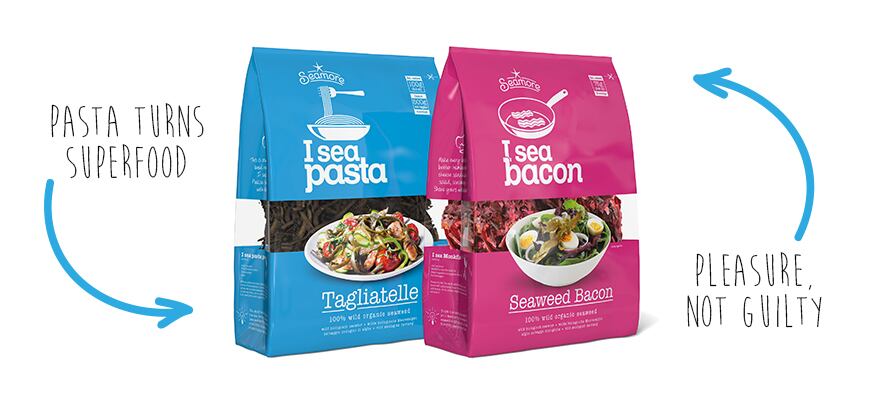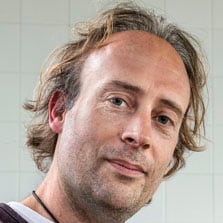Since the company’s launch in 2014, Seamore now has two products available to buy in eight countries and an online shop that ship world-wide.
The bacon is made out of 100% organic, unprocessed seaweed that can be used in a variety of ways to add flavour or texture to meals.

The seaweed bacon can be used in its dried form or can be soaked or fried, before added to meals, and it has a smoky, salty taste.
For the launch of I Sea Bacon, the company marketed the product using the slogan “Save My Bacon”, claiming there are three benefits to eating I Sea Bacon.
“The first is you’re not getting saturated fat; you’re just getting good stuff and that saves your own skin. The second is you don’t have to sacrifice the pig and the third is that pork is one of the most eco-unfriendly foods that we have, so you’re saving the skin of the planet too,” Willem Sodderland, founder of Seamore, said.
Currently, Seamore only uses two varieties of seaweed, himantalia elongate and dulse, out of the 10,000 species available, one for the pasta and the other for the bacon respectively, which it harvests out of Ireland and Brittany, France.
Sodderland explains that one benefit of harvesting from these sites is they are able to get both varieties of seaweed from the same suppliers.
However, it is experimenting with different varieties for its new products.
“We are still in talks [with seaweed suppliers] about quality and quantity, so nothing has been decided yet but there are lots of possibilities. For other species the scope can be completely different. South America and Asia are also regions we can source from. When we start to expand to use more species then our geographic scope will also change,” Sodderland said.

Sodderland will be giving a presentation at the Food Vision event in March, held in London, which will focus on how Seamore has become the forerunner in a whole new food category that has the potential to become a sustainable source of protein, carbohydrate, minerals and vitamins.
He will discuss the technologically friendly side of harvesting seaweed, as well as the company’s partnership with Dutch bank Rabobank and how Seamore became a part of its ‘banking for food’ initiative.
As well as growing into new countries, Sodderland says new products are also on the horizon, including wraps and ready-made meals.
“One of the things we are seeing is that there is a group of people that are more willing to go out and find new foods that have the great benefits our products have, and are able to adjust to the way you cook with them.
“There is obviously also a much larger group of people that doesn’t really want to do much. They want a healthier product, they would love to have products that are organic, maybe more sustainable, but they don’t really want to do much to get it,” he said.
The ready-made meals will be targeted at these consumers in order to entice them to try seaweed based products.
He added that the new products are still in an early development stage and will take time to become market ready.
Sodderland believes his products can be used to make tasty dishes and can be used as substitutes in classic recipes. His favourite dishes are mashed potatoes with endives and I Sea Bacon, as well as I Sea Pasta pesto.
“It is a really incredibly simple dish. It’s the pasta with a vegan pesto with some cherry tomatoes for colour. Then you can go in different directions; you can add a piece of cod, or some chicken or even lamb chops. If you wanted to go completely vegan then you can use artichoke hearts,” he said.

Interested in learning more about product innovation, snacking trends and how to connect with consumers? Then join other food and drink industry leaders at Food Vision from 1 - 3 March 2017 in London.
Organised by William Reed, the publisher of FoodNavigator, this industry event brings together CEOs, academics and top scientists for three days of interactive conferences and networking sessions on how to drive sustainable growth and profitability in global nutrition, food and beverage markets.
